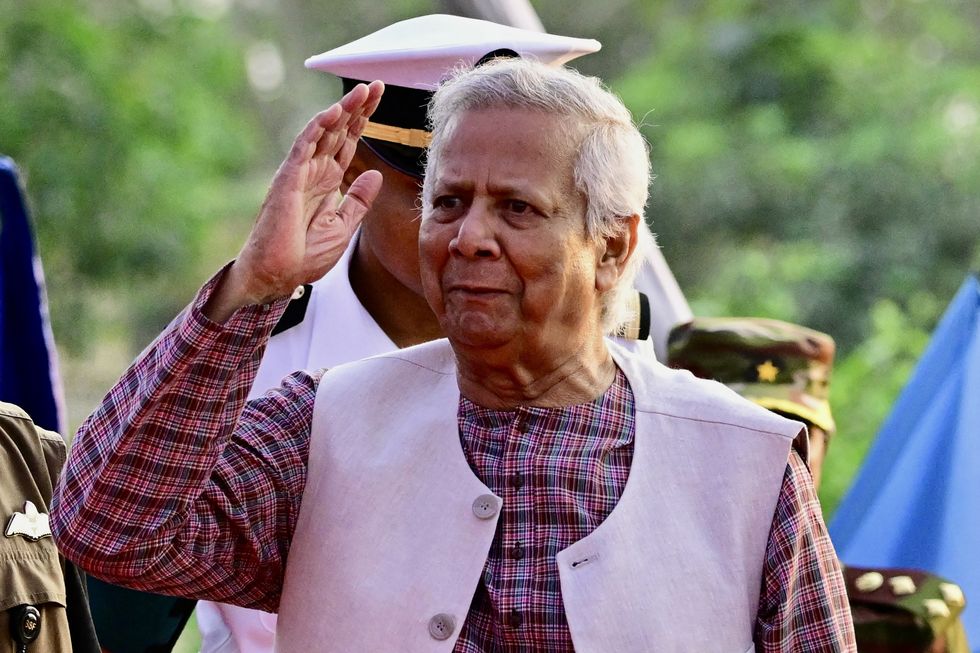SHABANA Mahmood, the UK's first Muslim lord chancellor, has spoken about her experiences with racism, shaped by her upbringing in Birmingham.
"The first time I was racially abused, I was seven years old," she said in an interview with The Times.
She described how her family's journey from Pakistan to the UK and the challenges they faced deeply influenced her path in life and her determination to succeed.
In her interview, Mahmood discussed her role as lord chancellor, her pride in being British, and how her background, including her family's corner shop, shaped her rise to overseeing the nation's courts and prisons.
Mahmood said, “The first time I was called a P*** was in the playground at junior school. I was about seven years old, and I did not know what the word meant. I knew the boy who said it to me was saying it to be horrible but I had to ask my best friend, who was one of the only black children in the school, what the word meant. And that was the first time I found out what the n-word was as well, because she said, ‘Well, it’s like the brown version of the n-word.’”
Elected to Parliament in 2010 as the first Muslim woman MP, Mahmood now holds the 1,400-year-old position of lord chancellor. She is the first Brummie and Urdu speaker in the role, and the only one who has sworn the oath of allegiance on the Quran. “It was the first time I thought I’ve broken through a barrier,” she said, adding that her success could impact future opportunities for others.
Mahmood has remained firm in her identity and faith. She emphasised that her Muslim faith is at the core of who she is. “It is the part of me that remains when all else is gone,” she explained, highlighting that her faith guides her actions and political decisions.
Reflecting on her parents' influence, Mahmood described inheriting the resilience of Kashmiri women from her mother and determination from her father. These qualities, she says, are vital as she tackles the challenges in her current role, overseeing an overcrowded prison system and lengthy court backlogs. Mahmood recently implemented an early release scheme for prisoners, addressing the severe capacity issues in prisons. "The crisis in our prisons is so acute that even that won’t resolve the underlying issue,” she told the newspaper..
The Labour MP for Birmingham Ladywood also shared her views on the justice system, particularly around sentencing and the treatment of prisoners. She expressed concerns about overcrowding in prisons and the need for reform, stating that rehabilitation, not just punishment, should be the focus of the system. However, she also stressed the importance of maintaining the public’s trust in law and order, adding that tough sentencing is sometimes necessary for serious crimes.
On the Labour Party's stance on migration, Mahmood advocated for controlled immigration that benefits the UK’s economy while addressing concerns about social cohesion. She noted that Labour is committed to fair and humane policies but stressed that immigration must be managed properly to avoid overburdening public services.
Born in Birmingham in 1980, Mahmood spent part of her childhood in Saudi Arabia, where her father worked as an engineer. She comes from a family that placed great importance on education. Her siblings have all pursued successful careers, with her twin brother working in software development, her sister in the NHS, and her younger brother in finance. Mahmood failed the 11-plus exam but went on to study law at Oxford University, where she became president of the junior common room at Lincoln College.
Although a devout Muslim, Mahmood does not wear a veil and believes that modesty is a personal choice. "For me, it does not require a headscarf or a niqab," she said, reiterating that she would never impose her religious beliefs on others.




















 Muhammad Yunus
Muhammad Yunus